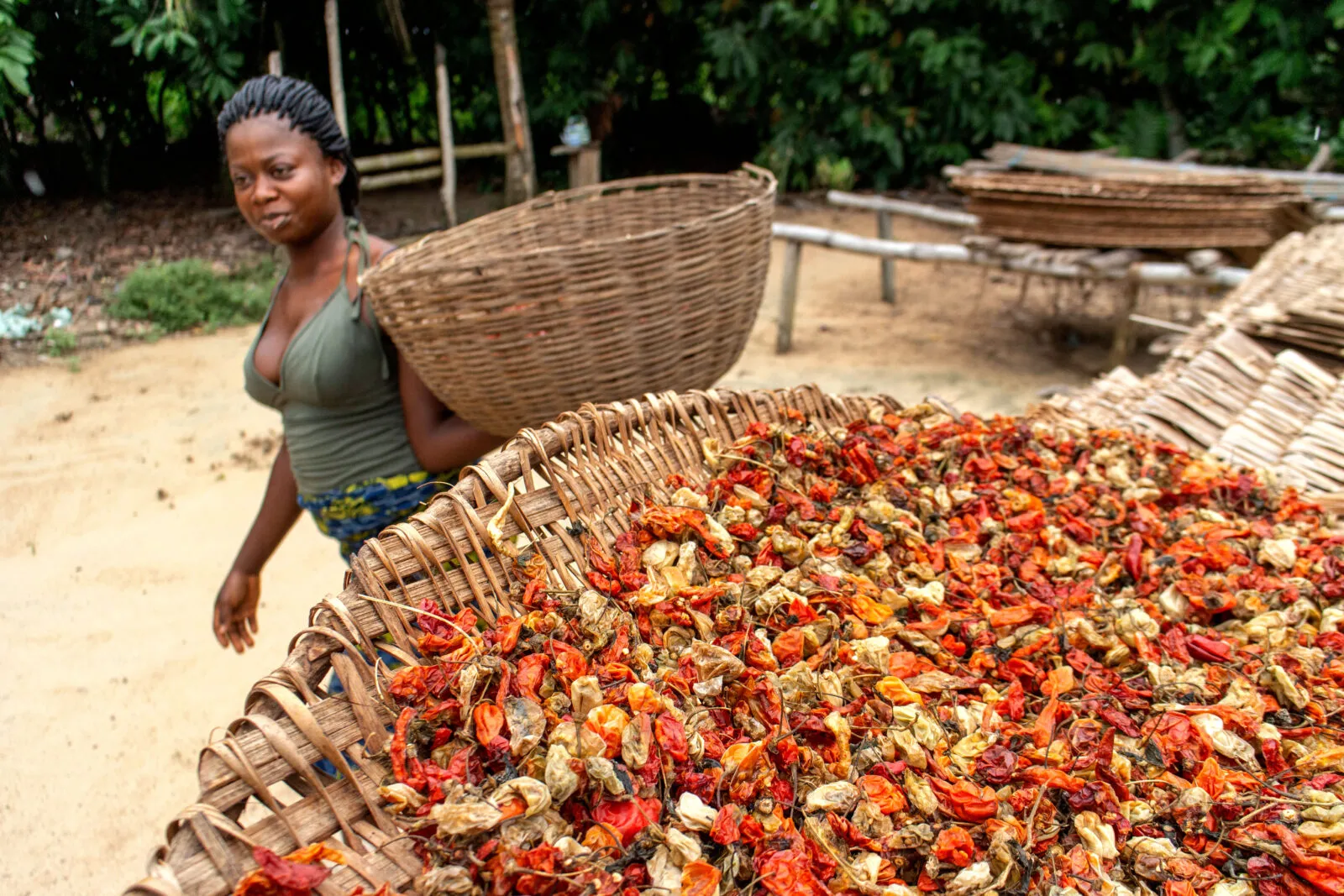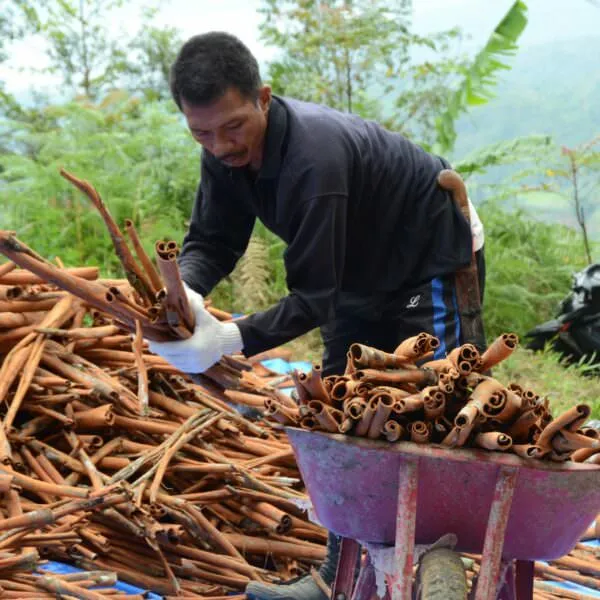It’s hard to imagine a world without herbs and spices. They are the heroes of our meals, desserts, drinks, and personal care products, adding the exciting flavors, colors, and fragrances that keep life interesting. But even though we use them every day, their journey from farm to shelf is complex and often hard to trace.
There is huge variety in the herbs and spices sector in terms of the way the crops are grown or collected, the landscapes they’re grown in, the scale they are grown at, and the range of products and markets they are used in around the world. There are also many sustainability challenges. That’s why the Rainforest Alliance partnered with the Union for Ethical BioTrade (UEBT) to create a joint certification for herbs and spices that is fostering a more sustainable and regenerative future for the industry.
Joining forces to increase sustainability in a fast-growing sector
The global herbs and spices industry is expected to grow from US$11 billion in 2022 to a staggering US$18 billion by the end of 2030. As the industry grows, the combined UEBT-Rainforest Alliance certification for herbs and spices works to improve farming practices, address biodiversity challenges, raise living standards, and build climate resilience.
At the farm level, almost all herbs and spices (with one or two exceptions) are certified using the UEBT methodology, which is ideally suited for an industry with high variety and typically low volume. Some of the herbs and spices in our program include vanilla from Madagascar, pepper from Vietnam, cumin from India and hibiscus from West Africa, among others. While farms are certified by UEBT using the joint UEBT-Rainforest Alliance standard, all companies must be Rainforest Alliance Certified and use the Rainforest Alliance traceability system. Final products can carry either the Rainforest Alliance and/or UEBT seal.
A holistic approach to address a diverse set of challenges
The combined UEBT-Rainforest Alliance standard builds on each organization’s strengths to tackle the wide range of sustainability issues facing the herbs and spices sector.
It specifically establishes processes to:
- Improve farming practices: The program works to increase crop yields and quality, reduce high input costs such as fertilizer or water, and develop climate-smart practices relevant to the growing landscape.
- Boost soil health: Farmers embrace growing methods that prevent soil degradation, such as Integrated Pest Management systems that reduce the cost of unnecessary chemicals and pesticide runoff.
- Protect and regenerate biodiversity: Farmers, especially those in key biodiversity areas, must develop plans to conserve natural ecosystems, support pollinators, protect wildlife, increase natural vegetation cover, and avoid the over-harvesting of wild crops.
- Protect workers’ rights: Farms address human rights issues, including discrimination and child labor, through the Rainforest Alliance’s assess-and-address approach. They also set standards to ensure healthy living and working conditions.
- Improve farmer and worker incomes: Through our shared responsibility principle, farms take concrete steps toward achieving living incomes and wages.
The herbal tea sector leading the way
For over a decade, the Rainforest Alliance and UEBT have worked together with passionate leaders from across the herbal tea supply chain to establish certified herbal products in the sector. Through our collaboration, we have improved how we work with farmers and are now operating faster and at a greater scale than ever before.
Our many years of work and investment in the herbal tea sector have set the foundations for our wider herbs and spices program. We are now proud to say that leading brands are certifying their entire herbal tea formulas through UEBT-Rainforest Alliance certification. By offering a way for brands to display their sustainability investments to customers, certification helps companies reduce risk of negative impact and enhance consumer trust and loyalty.
Working in alliance for a brighter future
Creating sector-wide transformation can only happen through collaboration. To drive the kind of ambitious change the world needs, the Rainforest Alliance works hand-in-hand with farmers, companies, civil society organizations, and government across sectors and supply chains. In the herbs and spices sector, we are active leaders in the Sustainable Spices Initiative (SSI).
The SSI brings together an international group of companies from across the spices, herbs, dehydrated vegetables, food, and retail industries to develop a collective strategy for the sustainable production, processing, and global trade of these ingredients. Member companies commit to reach or exceed 25 percent sustainable sourcing in at least three top product categories by 2025, and 50 percent by 2030. They are also actively working on sector-wide issues like child labor, living wages, and climate change. The UEBT-Rainforest Alliance certification is benchmarked as one of the standards that SSI members can use to meet their sourcing commitments.
This is just the beginning of what can happen when we team up across supply chains and focus our efforts. We encourage all companies in the herbs and spices sector to join us as we create a level playing field for sustainable spices.



